Best Sega Master System games of all time
10. Castle of Illusion Starring Mickey Mouse
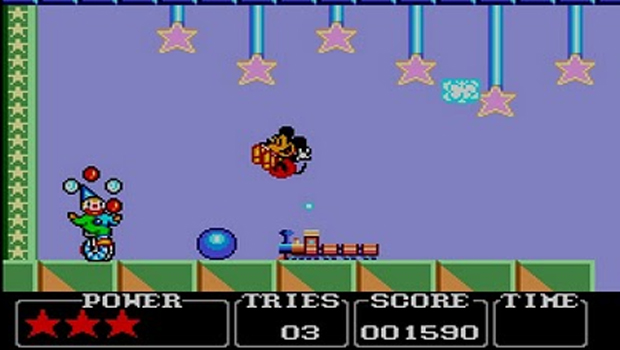
Emiko Yamamoto, who went on to work on titles such as Kingdom Hearts, made her debut on the design team for this, one of the most beloved titles of Sega's early generations. Its a fast-moving platform game with a strong sense of magic, where high-jumping abilities often take a backseat to engaging puzzles.
Yamamoto (credited here as Emirin) has said that as a newcomer to game design, she placed an emphasis on scenarios she thought would enhance the games fantasy appeal, paying little consideration to whether they'd work within the platform rules of the time. The game's lasting appeal (and its recent HD remake) is testament to her natural design instincts.
9. Sonic Chaos
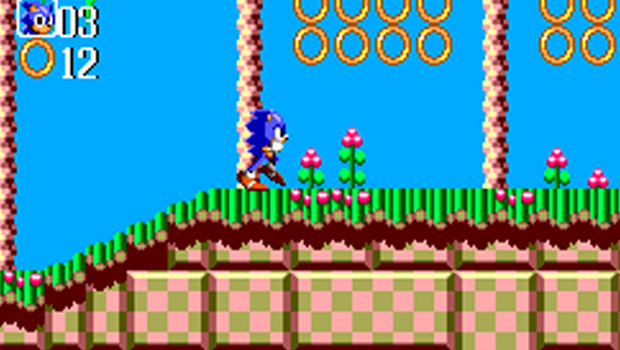
Sonic the Hedgehog 2 had offered a number of exciting features that Master System owners missed out on in the hedgehog's first adventure, but there were still notable omissions - chief among them that of Miles Tails Prower, or Miles Power as his silly pun name is written in this game's credits.
Fortunately, that was the only thing Sega got wrong about the plucky fox's Master System debut, offering you the same choice of Sonic or Tails available on Chaos Genesis equivalent, Sonic 3. Sega's commitment to innovation and variety, even on the second-tier Master System, shines through in high-speed, high-flying stages that give both characters their chance to shine.
8. The Lucky Dime Caper Starring Donald Duck
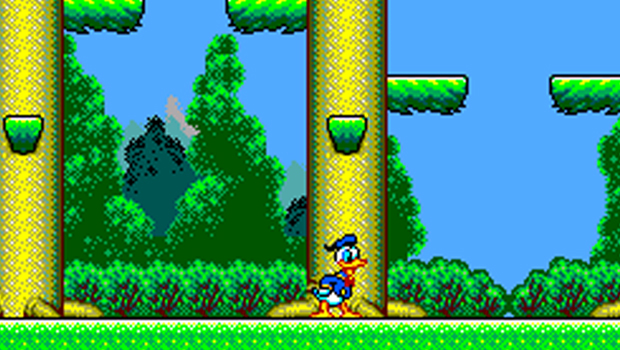
The first of Donald's two adventures on the Master System and Game Gear, The Lucky Dime Caper benefitted from the involvement of many of the same Sega staff as Mickey's SMS and Genesis adventures. Something of a spiritual companion to the Genesis Quackshot, the Master System's version of Lucky Dime Caper has the distinction of being the most combat-heavy of Sega's early Disney titles.
Unlike Mickey, Donald comes equipped with a melee-ready hammer, and unlike the Game Gear version, the only way to grab many power-ups is to use that hammer for caving enemies' faces in. Seems the folks at Sega understood the psychotic duck's appeal only too well.
7. Dr Robotnik's Mean Bean Machine
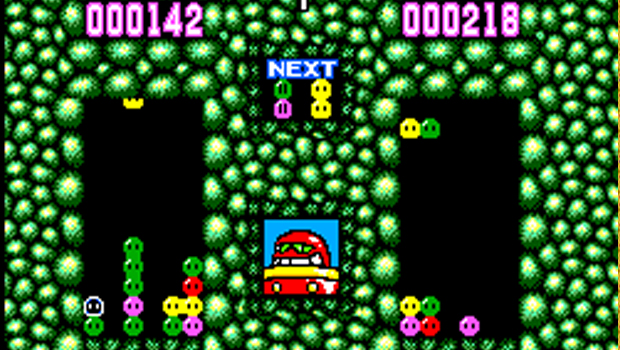
The Sonic-and-friends reskin of uber-addictive puzzler Super Puyo Puyo changed nothing where it counted. Arrange-the-falling-objects games were as thick on the ground in those days as today's shuffle-the-gridded-shinies titles, so for a title like this to make the kind of waves it did was something special.
Sign up to the GamesRadar+ Newsletter
Weekly digests, tales from the communities you love, and more
The secret may have had something to do with the game's high degree of strategic play, forcing you to shore up combo after combo of those ever-tumbling beans faster than your opponent. A roster of oddball enemies taken from the Sonic cartoon were a pleasant novelty, but couldn't compete with the game's scope for multiple humans to match wits in epic bean-counting contests for the ages.
6. Prince of Persia
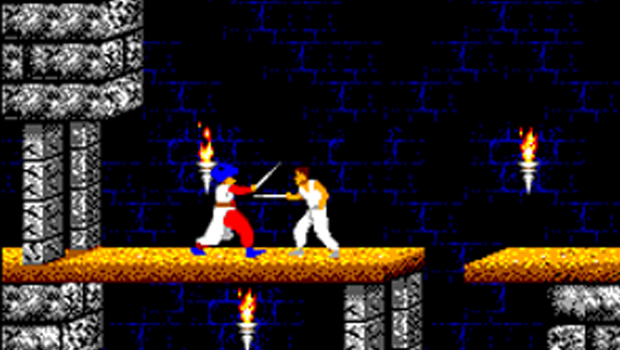
Personal computers of the late 1980s were incomplete without a translation of Jordan Mechner's rotoscoped spin on Arabian Nights dungeon-crawling, which pioneered the use in video games of techniques beloved by big-budget animated movies. Mechner, who famously videotaped his brother running about in white pyjamas to capture the Prince's flowing animation, also designed a fiendish network of labyrinths for players to navigate - laden with hidden power-ups, secret traps, and scimitar-wielding skeletons for that authentic Ray Harryhausen vibe.
The result is an uncommonly realistic-feeling romp, whose tight time limit and precise jumping puzzles - not to mention that ingenious, reality-based animation - translated perfectly to the SMS.
5. The New Zealand Story
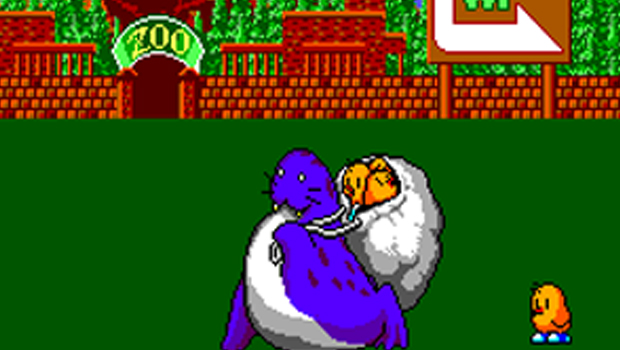
Taito's platformer was legendarily conceived after a company exec took a vacation in the future Middle-earth and decided here was a country worth designing a platform game around. As a tourist record its puzzling at best - ornithologists would have a hard time picking the high-flying hero as a kiwi, the country's flightless mascot, and mass birdnappings by feral seals are rare at best in the Antipodes. But you probably couldn't make a whole game out of being brilliant at rugby and sheep farming, so it may be that Taito's programmers had the right idea.
This is a platformer with an unusual emphasis on evasion and combat, perfect for those times when you want a game to chirp upbeat melodies while reminding you that games of the olden days were mainly designed for the purpose of kicking your ass.
4. Sonic the Hedgehog
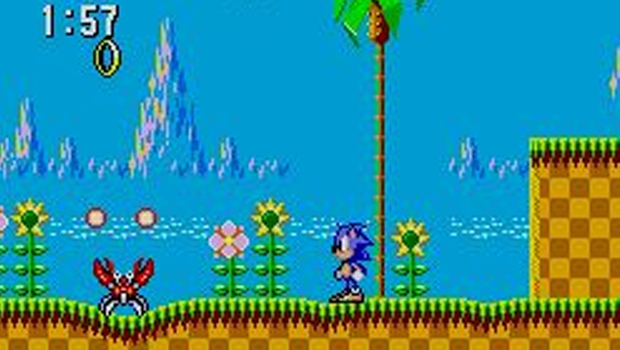
Sonic's characteristic zippiness was pressed into frequent service to sell whichever technological wizardry Sega was flaunting this season, but the hedgehog's lo-fi debut still managed to make a compelling case for the Master System's own austere assemblage of chips.
Featuring gleaming design, an expansive soundtrack, and a solid succession of levels that weren't afraid to divert from the Genesis formula, the game offers plenty of challenges, variety, and admirable replay value. And it really did go pretty damn fast, at least after you picked up the game's sole pair of Speed Shoes.
3. Road Rash
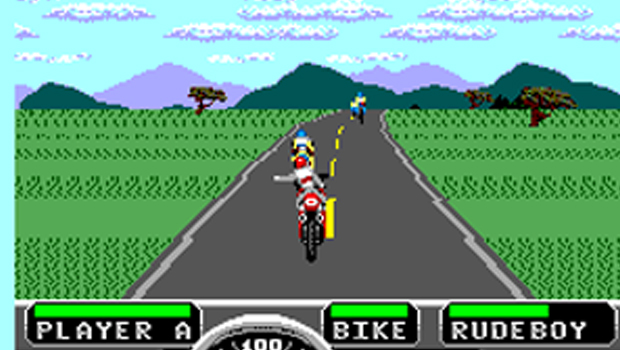
Motorcycle racing and punching people were two great tastes that finally - with the release of this seminal 1994 brawler - had the chance to taste great together. Before Need for Speed or EA Big, Road Rash was the sports-heavy Electronic Arts most attitudinal line of cartridges, and the series debut comes out swinging on Sega's platform.
Racing titles put in an admirable showing on the Master System, and this is one of the most polished (and the option to draw your foes into high-speed brawls sure didn't hurt). Get your motor running, head out on the highway, have a look for some adventure, and whoever comes your way, sling a chain in their face.
2. Land of Illusion Starring Mickey Mouse
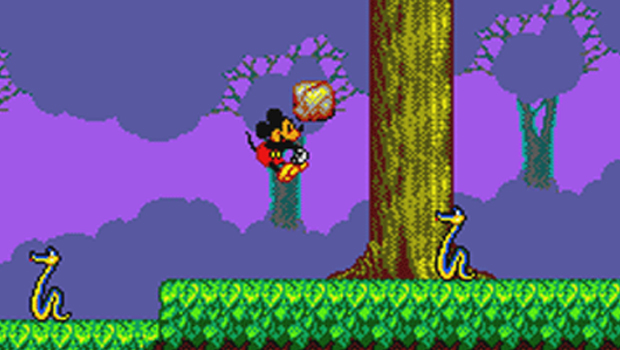
Mickey's illusory adventures wouldn't have made the list three times unless the series was in the habit of doing something right. Put together internally by many of Sega's most prolific programmers for the Master System - including staff from Asterix, Sonic, and Castle of Illusion - Land of Illusion offers similar platforming action to Castle and Legend of Illusion, by now honed into a comfortable rhythm and still challenging.
DuckTales may've been a standout on Nintendo's platform, but the Master System was where Mickey Mouse was most prolific. After the disappointment of Epic Mickey 2, it makes us long to see the mouse return to these glory days.
1. Asterix
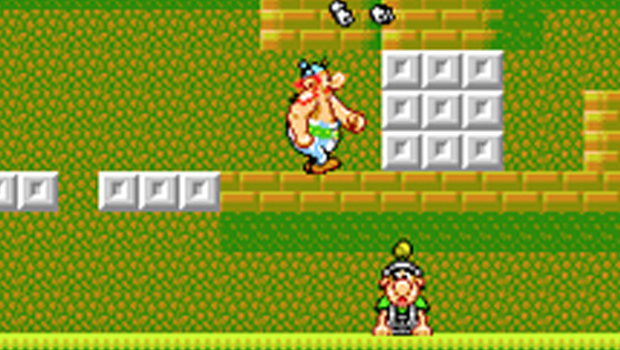
The NES may have had a stranglehold on big-name comics properties like Batman, but Marvel/DC funny-book heroes weren't the only game in town. Master System owners - many of them living outside the Big Two's American sphere of dominance - were pleasantly surprised when Sega's license of this cult French series turned out to be one of the deepest, most varied platformers of its era.
Fans of the comic had fun spotting references to Asterix's previous adventures in the game's all-new storyline (something about a kidnapped mentor and some coins needing collecting), while the more games-literate chuckled at Sega's brazen borrowing from reigning genre heavyweight Super Mario 3. It may have been derivative, but there was nothing on SMS like it.
GamesRadar+ was first founded in 1999, and since then has been dedicated to delivering video game-related news, reviews, previews, features, and more. Since late 2014, the website has been the online home of Total Film, SFX, Edge, and PLAY magazines, with comics site Newsarama joining the fold in 2020. Our aim as the global GamesRadar Staff team is to take you closer to the games, movies, TV shows, and comics that you love. We want to upgrade your downtime, and help you make the most of your time, money, and skills. We always aim to entertain, inform, and inspire through our mix of content - which includes news, reviews, features, tips, buying guides, and videos.


